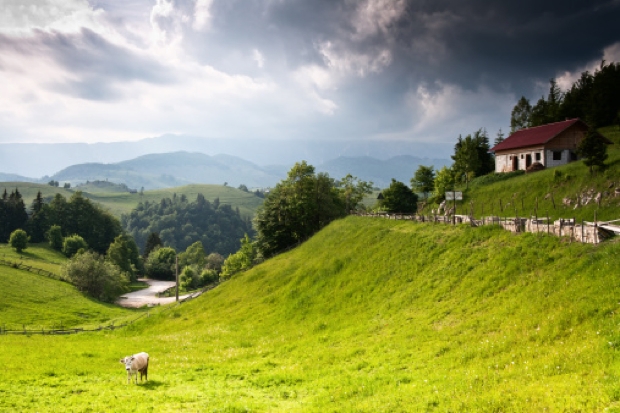Black Sheep opens biblically, with a mining village named Mount of Zeal, which is ‘built in a bowl like an amphitheatre, with the pit winding gear where a stage would be’. It is divided into Lower, Middle and Upper Terrace, the last-mentioned known by the locals as Paradise. If, like many bookshop browsers, you judge a novel by its first page rather than by its cover, you might think, at this early point, that Susan Hill’s fairly recent theological studies sit heavily on the structure. You might expect (not necessarily with wild excitement) a familiar tale of stock characters and their moral failings.
But it’s not like that. The opening page or two mislead benignly, giving a generalised feel to what is, in fact, a personal and moving novella. Black Sheep concerns the kind of village life we prefer not to think of: a microcosm, in which one’s opportunities are slender to the point where the future is provided ready-made, whether it fits or not.
The Howker family are a fixture in Mount of Zeal, and on the surface seem liberated rather than confined by the prescriptiveness of a place with a mine and nothing else. John Howker works hard and hands over his wages to Evie, who spends her life cleaning the house and preparing clothes and food. Jimmy and Clive, their two middle sons, follow the parents in their enjoyment of routine. But not all family members are as comfortably swaddled by circumstance. Arthur, the oldest son, prefers to work night-shifts and keeps himself separate from the others. He is a peripheral character, and it seems fitting when he disappears without a farewell, an event which horrifies John and Evie.
At the centre of the novella are the youngest son, Ted, and his older sister, Rose. A reflective and considerate child, Ted later discovers something unfortunate so far as his mandated career is concerned, namely that he is an outdoors type, happiest near farms and fields and dreading the stygian blackness of the mine. Rose wants to marry to escape from a second-class life of assisting Evie in catering to coal-begrimed men, but she is hasty in her choice of the pit-manager’s son, and short-sighted in thinking that marriage would bring anything but further drudgery. The intertwining plights of Ted and Rose, and their need for something more than Mount of Zeal offers, gives this story its momentum. Religion, while not in the foreground, lingers in the bloodless form of Reuben, John’s father, a selfish man who reads the Bible aloud all day, fascinated with the fall of mankind but indifferent to the suffering of his actual family.
This is an admirably compressed book, in which the snappy pacing sits in enjoyable contrast to the slow plod of village life. Moments of importance are described with a brevity that generally serves to sharpen rather than deaden them. A lot is crammed into these short, generously spaced pages, and only occasionally does Hill’s economy create a slub in the texture — when, for example, the conciseness reduces to summary, or when a physical feature (ugliness or muscularity, say) serves as a surrogate for fuller characterisation.
In the main, however, Black Sheep is gripping all the way to its unexpected end






Comments